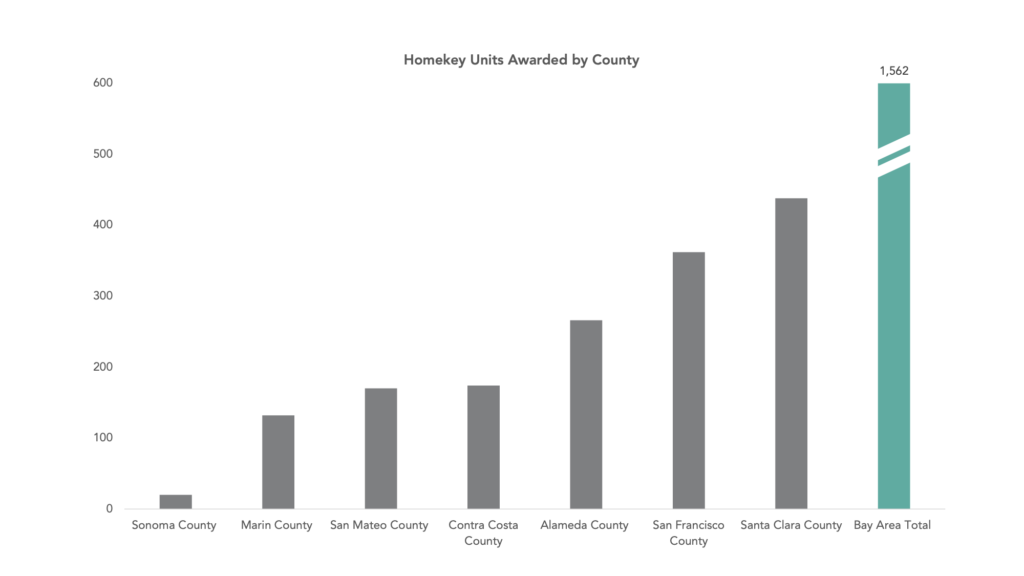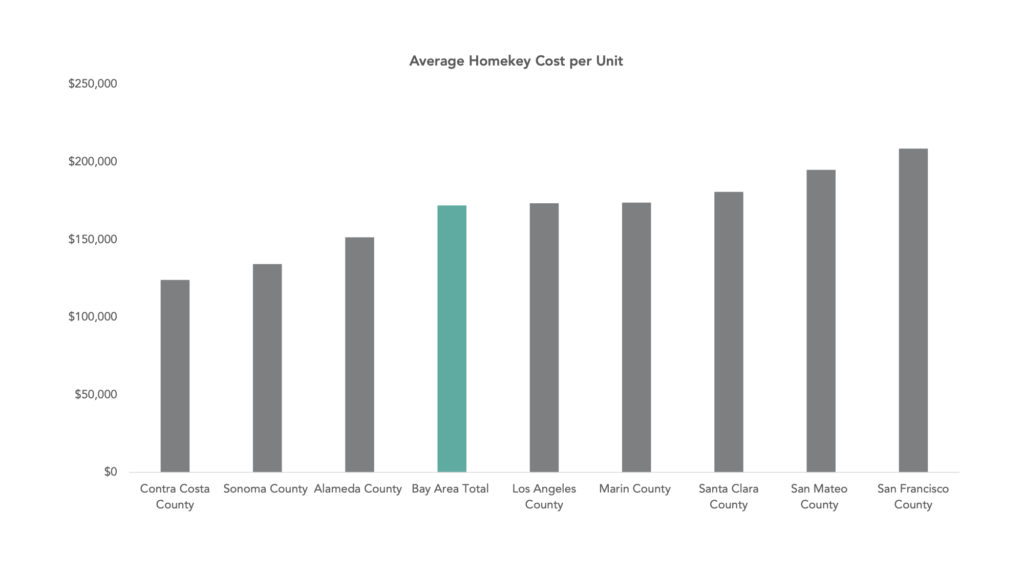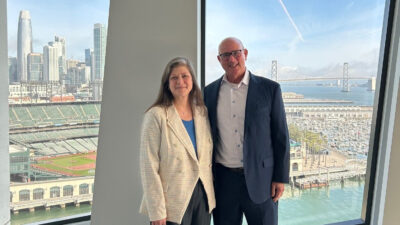Bay Area Comes Out on Top as Project Homekey Wraps
Governor Gavin Newsom has finished announcing Project Homekey grants. How did the Bay Area do? The Bay Area accounts for roughly 18% of the State’s population and 23 percent of California’s entire homeless population, yet the region received 36 percent of total Project Homekey funding. Homekey will facilitate the addition of 1,562 units of emergency shelter, interim housing, and permanent supportive housing in one of the largest expansions of homelessness housing in the Bay Area’s history.
Project Homekey uses federal COVID-19 aid money to buy hotels throughout California for conversion into homeless housing including permanent supportive housing and transitional housing. The Bay Area Council in partnership with leaders from AllHome, Destination Home, and Mayors Libby Schaaf, London Breed, and Sam Liccardo helped pull together a regional ask for $5 billion in CARES Act funding for homeless services, $4 billion of which was secured. With the last round of funding announced, the State has awarded over $908 million for 93 projects totaling 6,055 units. That’s about $300 million more than originally targeted. Additional funding was made possible through Governor Newsom’s leadership in collaboration with the Legislature to allocate additional COVID-19 relief funding to support Homekey projects.

In total, the Bay Area received approximately $330 million to fund 21 projects, adding 1,562 units of emergency shelter, interim housing, and permanent supportive housing to the region’s inventory. Bay Area Homekey awards include projects in the following communities:
- Santa Clara County was awarded $80 million for five projects totaling 438 units. Highlights of Santa Clara Homekey include a move in ready 146-room property with kitchenettes and bathrooms in each unit and the permanent acquisition of a 76-unit property currently operating as a Project Roomkey.
- San Francisco County was awarded more than $73.9 million for two projects totaling 362 units. The acquisition the Granada Hotel will create 232 units of permanent housing for those experiencing homelessness or at-risk of homelessness. The city will also convert a 130-room property into permanent housing with supportive services. Both projects are within walking distance of public transit, grocery stores, medical facilities, and a pharmacy.
- Alameda County was awarded $75.5 million for eight projects totaling 266 units. The majority of the units will be used to permanently house residents coming out the Project Homekey program. Other units will be used as interim housing while improvements are being made create studio units for permanent housing by the fall of 2022.
- Contra Costa County was awarded $21.5 million to acquire the 174-unit Pittsburg Motel 6 and provide on-site services to support individuals experiencing homelessness. The county will use the property as interim, non-congregate shelter, with a coordinate exit strategy to permanent supportive housing.
- San Mateo County was awarded $33 million for two projects totaling 170 units. The County will purchase two properties, a 75-unit hotel and a 95-unit hotel, to provide service-enriched interim housing. The program’s interim housing services will provide comprehensive onsite services, as well as connections to additional off-site services to support residents in staying housed, both in interim housing and through the transition to permanent affordable housing.
- Marin County was awarded nearly $22 million for three projects totaling 132 units of interim housing. The county will conduct rehabilitation as needed and over time, units will be converted to permanent housing.
- Sonoma County was awarded more $2.6 million to acquire a vacant motel and rehabilitate 20 units to be used initially for interim housing for the Kashia Band of Pomo Indians homeless members. It will then transition to permanent supportive housing at which onsite services will be available to the residents. This was Homekey’s first tribal project to be receive an award. It will decrease the number of the Kashia Band’s members experiencing homelessness by two-thirds.

At an average cost of $172,039 per unit, the Homekey conversion projects are a bargain. Similar conversion projects in Oakland in recent years have cost approximately $300,000 per unit. Projects in Los Angeles County are also significantly cheaper under Homekey, with an average cost of $173,479 per unit. With all projects awarded, Homekey will create new units of homeless shelter and housing, for approximately 6 percent of the Bay Area’s estimated 24,689 unsheltered homeless residents. Statewide, Homekey will help bring 5.6 percent of California’s 108,000 unsheltered homeless residents inside.
Meanwhile, local NIMBY resistance to homeless services have halted or delayed Homekey projects in Novato, Redwood City, and Milpitas. Collectively, these projects could add 132 units of permanent supportive housing and 165 units of interim housing to Bay Area’s housing inventory. Despite being entirely funded by county, state, and federal dollars, persistent NIMBY opposition is a reminder that the region’s lack of homeless solutions is not always due to lack of funding.
Despite Project Homekey’s overall success, the region would need an additional $3.9 billion in funding to house the remaining unsheltered homeless population using its hotel/motel acquisition model.
To get involved in the Council’s Homelessness work or to learn more, contact Policy Associate Anna Sciaruto at asciaruto@bayareacouncil.org.
Featured image courtesy of NBC Bay Area.





